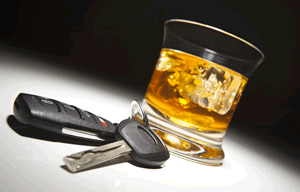How will previous DUI arrests affect my current DUI?
To determine how a previous DUI arrest and conviction affects your current DUI arrest it's important to understand your state's look back period. The 'look back' period refers to the length of time a previous DUI offense can be used to add penalties if a new DUI offense is committed. State look back laws vary. The shortest look back period is five years; the maximum is a lifetime. On average the look back period is 10 years.
How is the look back period calculated? Generally, most DWI look back periods begin and conclude on the date the person was arrested for the DUI, not the date that they were convicted. For example, if you were arrested for drunk driving on Jan. 16, 2001, and then arrested again in March of 2011, if you lived in a state with a look back period of 10 years, your second drunk driving offense would be treated as your first drunk driving offense because the ten year look back period would have ended prior to your second DUI arrest.
Common look back periods by state:
Five years: Rhode Island, Oregon, Missouri, Mississippi, Montana, Louisiana, Kentucky, Illinois, Indiana, Idaho, Hawaii, Delaware, Colorado, Alabama, and Florida (second offense)
Six years: Ohio
Seven years: Washington, North Dakota, Arizona and Colorado (third offense)
Ten years: Texas, Wyoming, Wisconsin, West Virginia, Virginia, Utah Tennessee, South Dakota, South Carolina, Pennsylvania, Oklahoma, North Carolina, New York, New Jersey, New Hampshire, Nevada, Minnesota, Maryland, Maine, Connecticut, California, Alaska, Arkansas, Georgia and Florida (third offense)
Twelve years: Nebraska and Iowa
Fifteen years: District of Columbia
Lifetime: Vermont, New Mexico, Michigan (3rd DUI considered a felony DUI charge), Massachusetts, and Kansas
The goal of the look back period is to decrease the recidivism rate of DUI offenders while still protecting the rights of the driver. Drivers make mistakes, and some states have created suitable periods of time to identify repeat drunk drivers while avoiding needlessly harsh DUI consequences for drivers who are not repeat offenders.
If you have been arrested for DUI it is important to contact a DUI lawyer for more information. If you are a repeat offender and your second or third DUI arrest is within your state's look back period, it is even more important to get good legal help to avoid severe DUI fines and penalties.
Related Pages
Related Videos
Latest Question
Prenuptial agreement when can it be disregarded?
Prenuptial agreements are generally enforced but they can be disregarded if certain conditions are met.Category: Divorce


